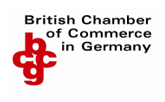Published on May 15th, 2024
Purchasing a property is a major life event wherever in the world you are. Factor in an unfamiliar language and foreign rules and regulations though and purchasing a property in Germany can be a major challenge. The real estate agent’s aim is to sell the property to you, not to sit down with you and make sure that you understand all the documents and terminology. Here we go through some of the most important concepts that you need to be aware of when purchasing property in Germany.
Division of ownership
The German term Teilungserklärung is a declaration of the division of ownership. This is relevant in particular for apartment buildings rather than detached houses. This declaration defines the ownership structure in an apartment building. The property owner uses the declaration of division of ownership to declare the extent to which the property is divided into individual units.
Owners’ Assembly
In Germany, the term Eigentümerversammlung is used to describe a regular meeting in which the separate ownership parties within an apartment building come together to communicate and make decisions. This is governed by the Condominium Act and must take place at least once per year, with certain situations requiring more frequent meetings of the owners. All meetings are well documented with decisions recorded in the minutes. Before purchasing a property, it is advisable to review recent transcripts of the meeting minutes to understand what repairs are scheduled for the upcoming years, what damages occurred previously and if there are/were any problems with the property.

Reserve funds
When your unit is part of a bigger property, each owner will be required to pay their share of the Rücklagen or reserve funds. This is an allowance in case repairs are required. In the event of repairs being necessary, this money is used to cover the cost. We recommend that you review the reserve funds for your property before purchase. In some cases there is a need for extraordinary repairs that cost more than the actual reserve funds and as such owners are required to cover the extra costs. These repairs however need to be scheduled in advance and agreed (and documented) during the Owner’s Assembly.
Registry of Deeds
In Germany, Grundbuch refers to the Registry of Deeds. It is a public register that is kept at the relevant land registry office for every property. Each of an owner’s properties are listed individually in a separate file. The Grundbuch contains information about the properties, the relevant rights and the ownership and contractual obligations. The purchase of a property must be entered into the Registry of Deeds.
It is crucial to review the Grundbuch prior to purchasing the property to understand who might have rights to your property and to what extent.
Easement
The concept of an easement is referred to as Dienstbarkeit in Germany. It allows a property to be used in a specific, restricted manner. This can be the use of a building or part of a building but may also be an access road over someone else’s property or pipes from another property on your land. Easements must be entered in the Registry of Deeds and a notary must attest that these are approved by the owner.
Expert support
We hope these explanations help you on your path to purchasing a property in Germany. If you do decide that you need more support, do remember that ExpatsGuide also has a registered licence to provide real estate agent services. Don’t hesitate to get in touch with us at ExpatsGuide, we will be happy to help!



